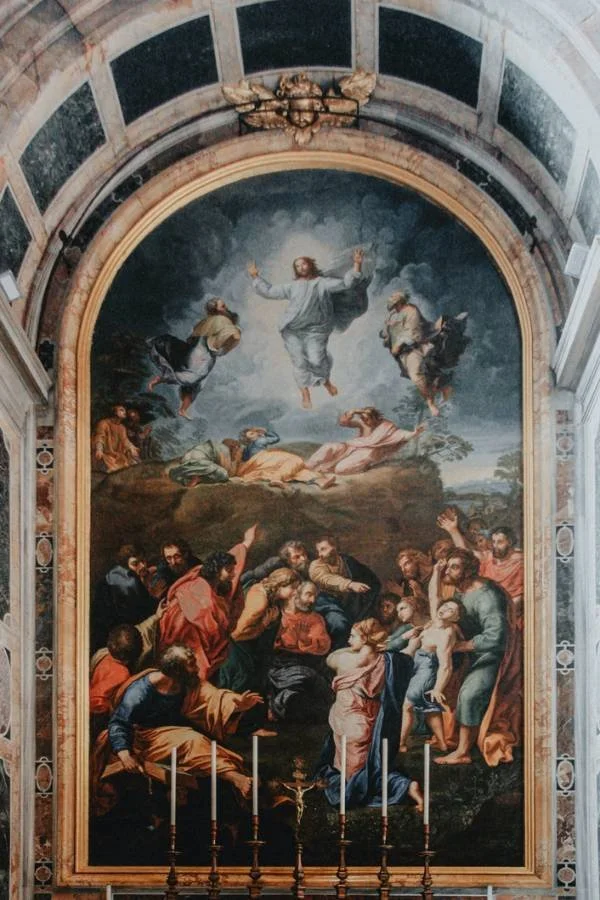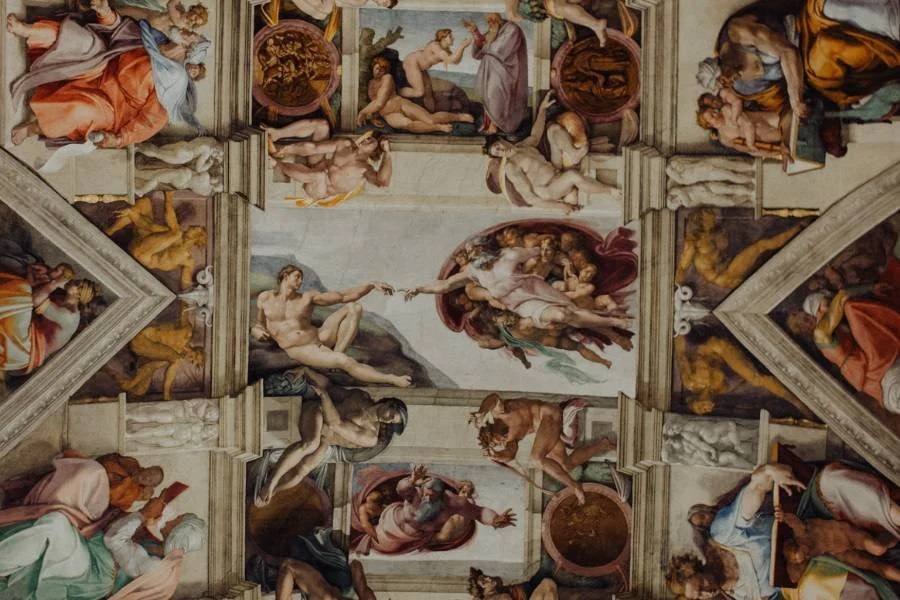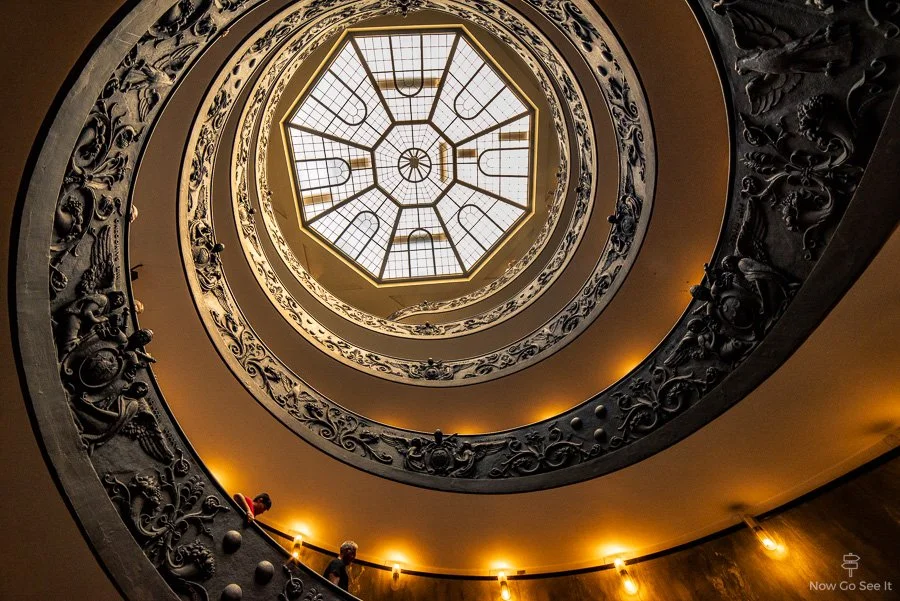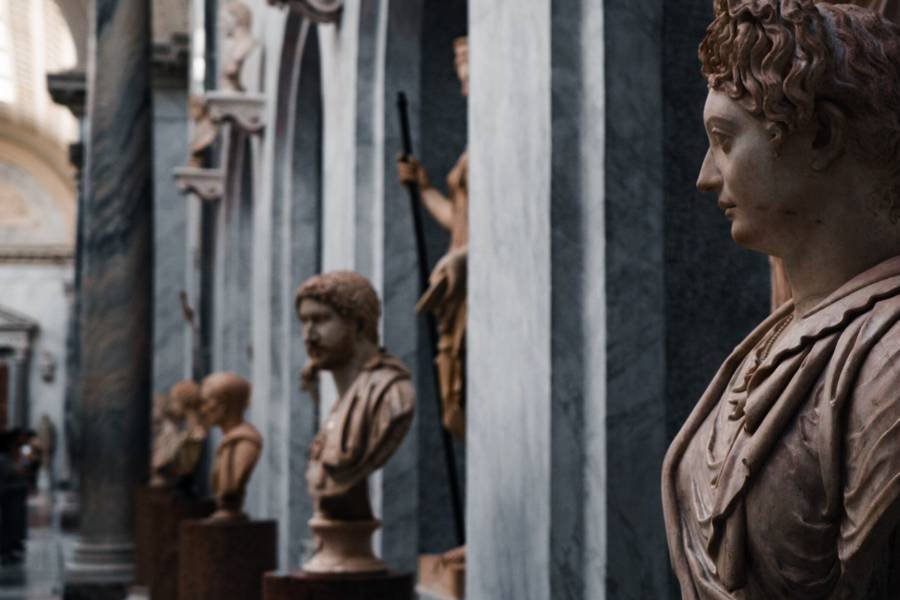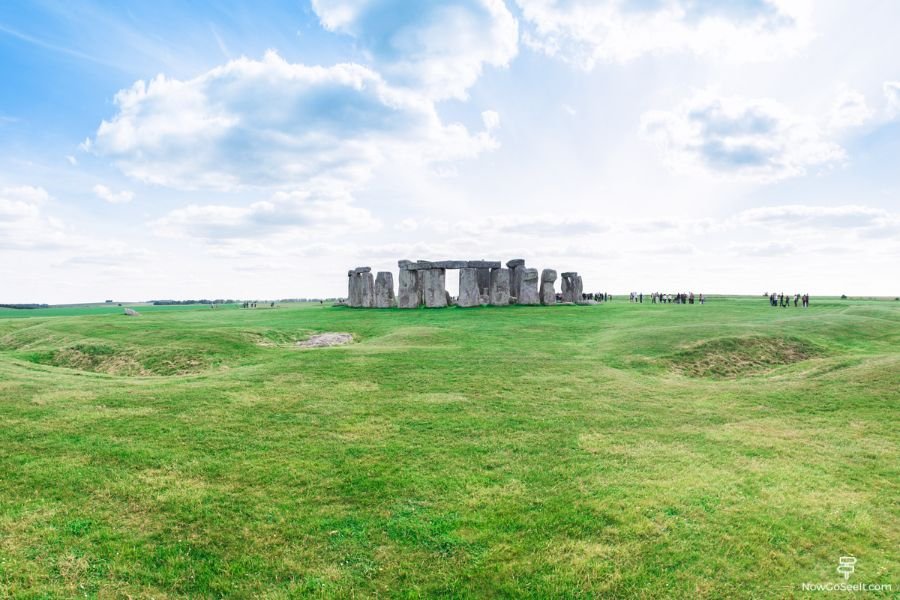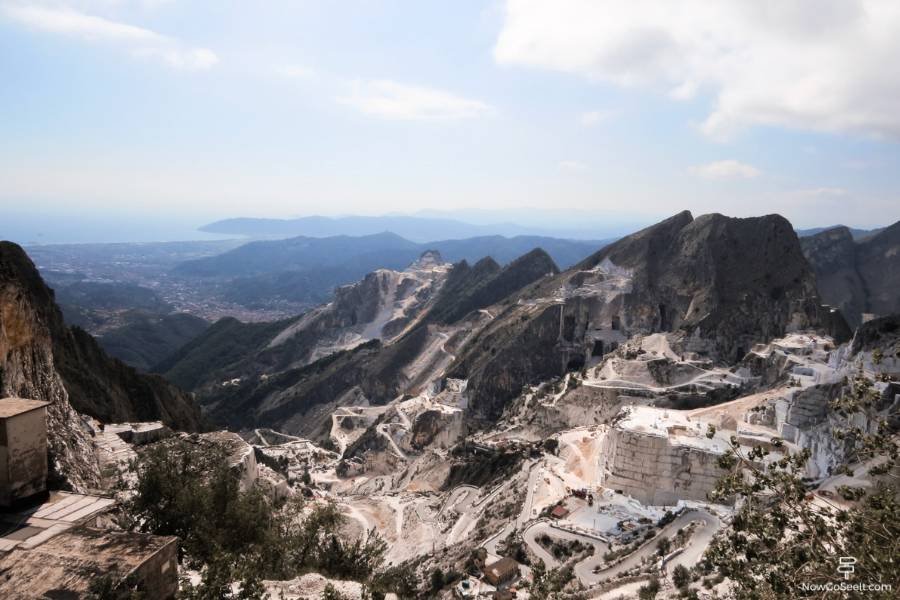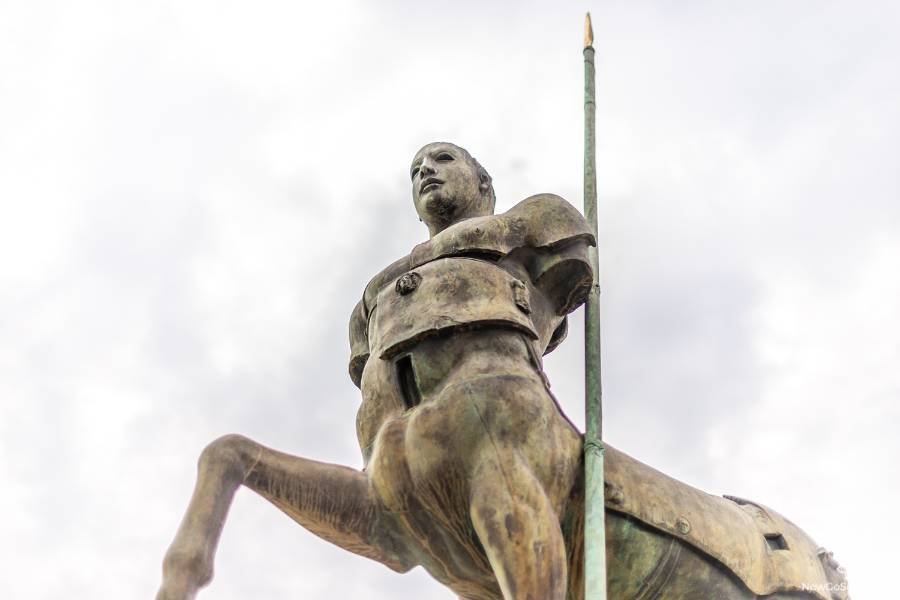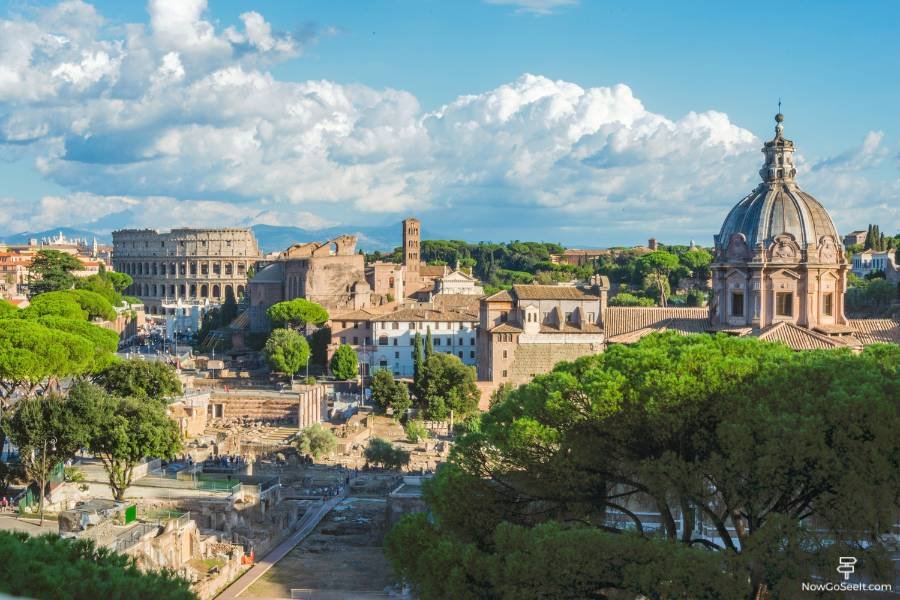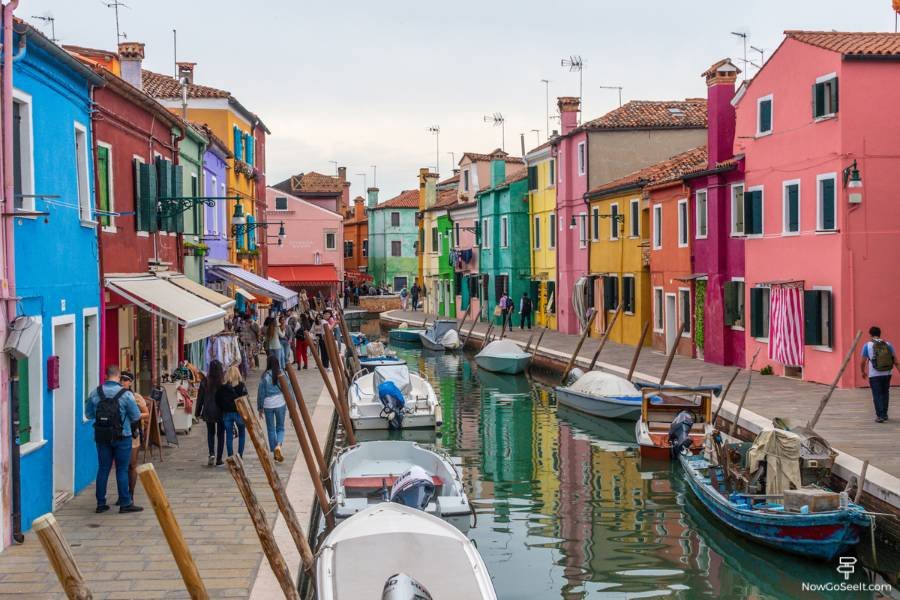Vatican Museum Highlights: Vatican Museum Must See Artwork
Now Go See It is reader-supported. When you buy through links on our site, we may earn an affiliate commission.
Navigate the Vatican Museum with ease using our comprehensive guide, highlighting the Vatican Museum must-see artworks, ticket details, and essential tips for a memorable visit.
What To See At The Vatican Museum: (Jump To)
Planning to visit the Vatican Museums? Prepare to immerse yourself in some of the most notable highlights of the Vatican Museum. From the iconic Sistine Chapel ceiling by Michelangelo to the mesmerizing Raphael Rooms, there's a plethora of Vatican Museum must-see attractions. As you delve deeper into its galleries, you'll be greeted by a vast array of paintings in the Vatican, capturing the essence of various eras and artistic movements. Each corner of this expansive museum complex in Vatican City tells a story, offering a unique blend of history, faith, and unparalleled artistic expression. So, get ready for an enlightening journey that showcases the rich heritage and artistic marvels that the Vatican Museums proudly house.
ad:
Vatican Museum Hours
The Vatican Museum Hours are essential to note when planning a visit. Typically, the Vatican Museum's open hours start from 9:00 AM and extend to 6:00 PM, with the last entry usually at 4:00 PM. However, these timings can vary based on the day or season, so it's advisable to check the official schedule before your trip. Understanding the Vatican Museum's opening hours ensures a seamless experience without any hitches.
Vatican Museum Opening Hours
Monday - Saturday: 9 AM - 6 PM
Extended Friday Summer Hours (May-October): 9 AM - 10:30 PM
Free Visits on the Last Sunday of Each Month: 9 AM - 2 PM
Vatican Museum Ticket Prices
The cost of admission to the Vatican Museums can vary depending on the type of ticket you purchase, with standard tickets, reduced rates, and special group rates available. The best way to buy tickets is through the Vatican Museums' official website, which allows you to purchase tickets in advance, often helping you skip the long ticketing lines at the entrance. Same-day walk-up tickets are rarely available.
Purchasing online also provides options for guided tours and combined tickets for other Vatican attractions. Always remember to check the current prices and availability before planning your visit.
Tickets are dated and timed, early or late arrivals will not be accommodated. Tickets are non-refundable and unchangeable so make sure your visit is locked in before completing a reservation.
Vatican Museum Tickets
Regular Admission: € 17
Students under age 25 with Valid ID: € 8
Children aged 6-18: € 8
Children under age 6: Free (No Ticket Required)
Please note that an additional € 5 “pre-sales fee” is charged per ticket at the booking website, making the actual cost of regular admission € 22.
You can also buy tickets using our partners Get Your Guide or Viator. These options may offer more flexibility with ticketing times and will help you bundle together other attractions to save money overall during your time in Rome and Vatican City.
Map of the Vatican Museum
The Vatican Museum boasts a staggering collection of over 70,000 global artworks, all housed within its vast 42,000 square meter expanse. While navigating such an immense space might appear intimidating, the museum has thoughtfully managed the visitor flow, ensuring a comfortable and unhurried experience. To optimize your visit and to ensure you plan ahead to see all the highlights we recommend utilizing a map.
Vatican Museum Map [PDF]
Link: omniavaticanrome.org
Highlights of the Vatican Museum
The Vatican Museum, with its vast expanse and unparalleled collection of art and artifacts, presents a challenge to even the most seasoned traveler. It's an overwhelming task to absorb everything in a single visit. For many, the sheer volume of treasures can lead to sensory overload, making it crucial to prioritize. If you're wondering where to start, we've got you covered! Dive into our specially curated guide detailing the top 24 must-see gems of the museum, ensuring you experience the very best of what the Vatican Museum has to offer. Don't miss out!
Laocoön and His Sons
Location: Pio-Clementino Museum
Among the leading Vatican Museum Highlights, this ancient sculpture portrays the Trojan priest Laocoön and his sons ensnared by sea serpents. This artwork, dating back to the 1st century BC, is emblematic of the transitions between Hellenistic and early Roman art. Its discovery in 1506 had a significant influence on the Renaissance artists.
Apollo Belvedere
Location: Cortile del Belvedere
This marble sculpture of the Greek god Apollo epitomizes classical beauty. Believed to be a Roman copy of a lost bronze original, it's a prime example of ancient artistry. For centuries, it's been considered a Vatican Museum must-see.
The School of Athens
Location: Raphael Rooms
Among the iconic paintings in the Vatican, this fresco by Raphael represents the unity of philosophy and science. It features eminent thinkers like Plato, Aristotle, and Pythagoras. Its depiction of knowledge is unrivaled and remains a highlight of the Vatican Museum.
The Transfiguration
Location: Pinacoteca Gallery
Another of Raphael’s masterpieces, this painting is his last work and displays the biblical story of Christ's transfiguration on Mount Tabor. The juxtaposition of earthly suffering with divine intervention makes it one of the Vatican Museum Must See Artworks.
Sistine Chapel: The Last Judgment
Location: Sistine Chapel
Michelangelo's grand fresco covers the entire altar wall of the Sistine Chapel. Painted years after the chapel's ceiling, it depicts the second coming of Christ and the final judgment. Its intricate details and vast scale make it an absolute Vatican Museum must-see.
Your Vacation is just a click Away.
Book your stay at a VRBO Today.
Sistine Chapel Ceiling
Location: Sistine Chapel
Painted by Michelangelo between 1508 and 1512, this is at the top of the list of the highlights of the Vatican Museum. The artwork narrates stories from Genesis, showcasing scenes like the Creation of Adam. Its revolutionary composition changed the course of Western art.
The Annunciation
Location: Pinacoteca Gallery
Crafted by Melozzo da Forlì, this artwork captures the biblical moment when the Angel Gabriel announces to the Virgin Mary her divine conception. Its delicate portrayal of light and emotion speaks to Renaissance ideals.
Stefaneschi Triptych
Location: Pinacoteca Gallery
This Vatican Museum highlight by Giotto showcases Cardinal Stefaneschi presenting the artwork to St. Peter. It's an early example of Italian panel painting, highlighting the relationship between church patrons and art.
The Spiral Staircase
Location: Museum entrance
One of the most iconic architectural features of the museum; originally designed by Donato Bramante in the early 16th century, it was intended to allow people and pack animals to ascend and descend without interruption, serving a practical purpose in its ingenious double-helix design.
The Madonna of Foligno
Location: Pinacoteca Gallery
Raphael's artwork displays the Virgin Mary with Christ amidst saints, highlighting the blending of celestial and terrestrial realms. Commissioned as a votive offering, it's a classic among the paintings in the Vatican.
Candelabra Gallery Statues
Location: Candelabra Gallery
A row of massive statues accompanies visitors through this long gallery. These Roman sculptures, transformed into candelabra in later years, form a striking avenue of artworks and remain highlights of the Vatican Museum.
Gregorian Egyptian Museum Artifacts
Location: Gregorian Egyptian Museum
Exhibiting ancient Egyptian artifacts, this section underscores the Vatican's connection to broader histories. Notable is the statue of the lion goddess Sekhmet, emblematic of the might and spirituality of ancient Egypt.
Augustus of Prima Porta
Location: Braccio Nuovo
This statue of the first Roman Emperor, Augustus, highlights his leadership and divine support. Derived from a bronze original, it remains a critical representation of Roman imperial iconography.
Borgia Apartment Frescoes
Location: Borgia Apartments
These frescoes, commissioned by Pope Alexander VI, blend Christian and pagan themes. The Resurrection, by Pinturicchio, is especially notable, embodying the early Renaissance's rich color palette.
Tapestry Hall Designs
Location: Gallery of Tapestries
Showcasing Flemish tapestries based on Raphael's drawings, this hall displays biblical tales woven with great detail. The Miraculous Draught of Fishes is a standout, capturing a pivotal New Testament moment.
Gallery of Maps Frescoes
Location: Gallery of Maps
These topographical maps, spanning walls, represent Italy's regions. Initiated by Pope Gregory XIII, they signify the church's vast territorial awareness and are integral Vatican Museum highlights.
The Descent from the Cross
Location: Pinacoteca Gallery
Caravaggio's dramatic artwork underscores the moment Christ's body is lowered from the cross. With his signature chiaroscuro technique, the piece emphasizes raw emotion and remains a Vatican Museum must-see.
The Niccoline Chapel Frescoes
Location: Apostolic Palace
Fra Angelico adorned this private chapel with frescoes displaying martyrdom and virtues. Their spiritual intensity and soft hues present a contemplative space.
The Constantine Vision
Location: Raphael Rooms
Illustrating Emperor Constantine's divine vision before a critical battle, this fresco emphasizes Christianity's triumph in Rome. Its monumental figures and vibrant colors make it among the key paintings in the Vatican.
Belvedere Torso
Location: Pio-Clementino Museum
This fragmentary marble statue of a muscular male figure inspired many Renaissance artists, including Michelangelo. Its powerful anatomy celebrates the human form's vitality.
Sala Rotonda Mosaics
Location: Pio-Clementino Museum
This hall's floor contains ancient Roman mosaics, including one representing a theatrical mask. These artifacts celebrate Rome's rich decorative traditions.
Chapel of St. Pius V Tapestries
Location: Chapel of St. Pius V
Displaying tapestries based on cartoons by Giorgio Vasari, this chapel presents scenes from the life of Christ. Their intricate detailing makes them Vatican Museum must-see artworks.
Mummy of Amenirdis
Location: Gregorian Egyptian Museum
This mummy, alongside its painted coffin, provides insights into the burial customs of Roman-era Egypt. It’s an example of the mingling of Roman and Egyptian traditions.
Ariadne Asleep
Location: Pio-Clementino Museum
This Roman statue portrays the mythological Ariadne, asleep after being deserted. Its serene form captures vulnerability and grace, emphasizing Greco-Roman artistic aesthetics.







